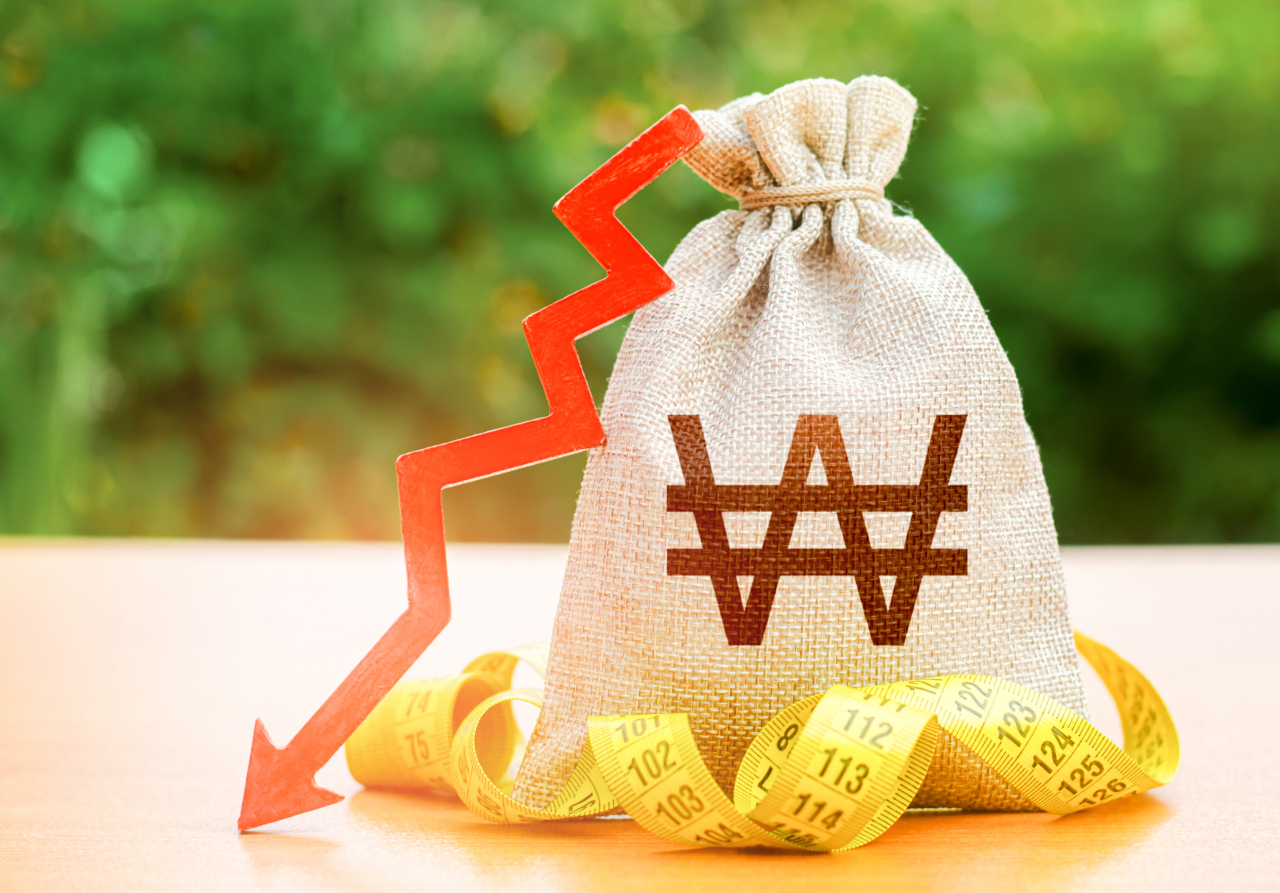Won slips to fresh 13-year low despite hint at intervention
By Choi Si-youngPublished : Sept. 7, 2022 - 18:23

The South Korean won tumbled to 1,384.2 won per US dollar on Wednesday in the onshore platform, the lowest closing figure since March 2009 during the global financial crisis, despite a warning from authorities that intervention could take place to steady the currency market.
The US dollar’s rally – led by investors pricing in higher US interest rates to come by year-end – has been weakening not only the local currency, but six other major currencies, including the Japanese yen. The dollar index, measuring the greenback against such currencies, has already soared to a 20-year high.
“The recent won depreciation seems a bit faster than warranted, given our economic fundamentals. We will do our part to calm the market,” the Bank of Korea said in a statement after holding an unscheduled meeting in the afternoon as the local currency looked ever closer to surpassing even 1,400 won to the dollar. The key threshold of 1,300 is considered a red flag for Asia’s fourth-largest economy, with June being the first time in over a decade that the psychological mark was crossed.
Minutes apart from the meeting, Finance Minister Choo Kyung-ho, who contends the economy is still sound despite the market tumult, said his ministry will do what is necessary to remove the volatility gripping local financial markets. The Finance Ministry supports the BOK assessment that the trade-reliant economy could withstand changes in the global economy like soaring energy and food costs and higher interest rates.
But just two days earlier, Choo had warned against taking for granted a current account surplus.
The warning was proven to be more than rhetoric, according to an advance estimate the central bank released Wednesday, predicting – albeit with hesitation – a current account deficit in August.
“Given the record trade deficit in August, we’ll have to manage our expectation for the August goods balance. We will have to look at other accounts, but it is possible that we could see a current account deficit in that month,” said Kim Young-hwan, a senior Bank of Korea official in charge of financial statistics.
Kim was referring to the August trade deficit of $9.47 billion, a monthly record high since at least 1956, when the Trade Ministry began to track the data. Higher prices of energy and petroleum products were blamed. The January-August deficit of $24.7 billion has already surpassed the yearly high set in 1996.
And for the first time in nearly a decade, the preliminary data showed, Korea posted a deficit in its goods balance on soaring energy import bills in July, with the current account surplus dropping sharply from the same month a year earlier.
The July current account surplus came to $1.09 billion, logging a surplus for three straight months but shedding 85 percent of the $7.71 billion seen a year ago in the same period. The goods balance, which largely determines whether the economy reports a surplus or deficit in the current account, posted a deficit of $1.18 billion, as higher energy import costs like oil and coal offset gains in exports.
Imports rose 21.2 percent on-year, three times the annual increase in exports, with energy imports soaring 35.5 percent on-year. The increases in coal and oil imports led to higher energy bills, accounting for yearly surges of 110 percent and 99.3 percent, respectively.
The overall services surplus stood at $340 million, compared with a deficit of $280 a year ago, thanks to higher shipping rates that had helped Korean shippers. But the primary income surplus declined from $2.84 billion to $2.27 billion in the same period
Adding to woes is the projection the bank made in a separate research paper, saying prices would remain elevated between the annual increase of 5-6 percent for some time, without specifying the time frame. Domestic inflation eased to 5.7 percent in August, from the record yearly increase of 6.3 percent in July. The bank expects inflation to average 5.2 percent this year, though it still targets a 2 percent inflation on average.
Bank of Korea Gov. Rhee Chang-yong has previously said a price slowdown would take place in the late third or early fourth quarter, though he stressed he would have to look at the “totality” of incoming data to offer a more accurate price trajectory.
“I can definitively say one thing: The 25 basis point raise is the norm, well for the time being,” Rhee said in late August, shortly after the bank’s decision to set the benchmark rate at 2.5 percent. The bank, which backed its single biggest hike of 50 basis points in July, will have raised interest rates for the year in November, which marks the end of the “next three months” he referred to when he spoke in August.








![[Kim Seong-kon] Democracy and the future of South Korea](http://res.heraldm.com/phpwas/restmb_idxmake.php?idx=644&simg=/content/image/2024/04/16/20240416050802_0.jpg&u=)








![[KH Explains] Hyundai's full hybrid edge to pay off amid slow transition to pure EVs](http://res.heraldm.com/phpwas/restmb_idxmake.php?idx=652&simg=/content/image/2024/04/18/20240418050645_0.jpg&u=20240418181020)

![[Today’s K-pop] Zico drops snippet of collaboration with Jennie](http://res.heraldm.com/phpwas/restmb_idxmake.php?idx=642&simg=/content/image/2024/04/18/20240418050702_0.jpg&u=)